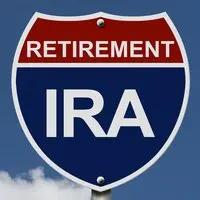Many of our clients have retirement assets held in a Traditional IRA, 401K, 403(b), or other similar plan. It is important to periodically review the beneficiary designations on these types of plans. A review should confirm that the institution still has the proper designations on file, the clients’ wishes are being followed, the designations fit into the larger estate plan of the client, and that the best interests of the beneficiaries are taken into account. This is of special concern if the beneficiaries are grandchildren or other minors.
There are certain benefits to leaving retirement assets to a minor who is a much younger beneficiary than the original account holder. When you leave retirement assets to a non-spouse, the beneficiary has the right to take it in an “inherited IRA”. The beneficiary of an inherited IRA must start taking distributions the year after the death of the original account holder. These distributions are taken as a “stretch”, meaning they are determined by the life expectancy of the new IRA beneficiary. In that case, the account can grow tax deferred over a much longer life expectancy. The rule of thumb is that the account will be worth approximately thirty (30) times its value if distributions are taken over the life expectancy of a grandchild. For example, suppose you name your grandchild as beneficiary of an IRA account with $100,000 balance. If your grandchild takes distributions based upon her life expectancy each year, then the account could be worth $3,000,000 over her lifetime. This is one of the great benefits of naming a minor as beneficiary of a tax deferred retirement account.
The problem is that you cannot achieve the benefit of the stretch if you name a minor directly as the beneficiary of any account; you must name a trust for the benefit of the minor. Since she is not an adult, she will be unable to take the required distributions as required beginning the year after your death. The only way to access the account is for the court to appoint a guardian for the property of the child, usually the parent. First, this will be a costly and unnecessary proceeding. But the result is even worse. The Court will direct the Guardian to distribute the entire IRA and pay the income tax. The income tax will be based upon the parents’ income if the child is under 14 years of age, this is the “kiddie tax”. In addition, the monies that are left after paying the income tax will be deposited in a bank account earning very little interest. If that isn’t bad enough, the account will be turned over to the child upon attaining the age of 18. This will obviously impact the child’s financial aid when he or she applies for college. This is a financial disaster.
In addition to retirement accounts, you do not want to name minors directly as beneficiaries on IRA accounts, annuities, insurance policies, bank accounts or any other account. Any and all distributions for a minor should be distributed to a trust that is drafted for the benefit of the child. The trust should be created as part of the estate plan, either through a last will and testament or in an inter vivos trust. Providing for the beneficiary’s share to go into a trust will ensure the benefits of inheriting a retirement asset are received. The beneficiary can get the stretch on the account and the asset will not need to be held by the court. However, be certain that the trust you are naming for the benefit of the minor is drafted for the purpose of receiving retirement accounts; all trusts are not created equal in this respect. A trust must be properly drafted and meet certain requirements set by the IRS in order to be accept the IRA distribution and receive the benefits described above.
Before naming a beneficiary on an account, one should check with the institution holding the account. Each plan has its own individual rules regarding the designation of beneficiaries. For example, the New York State Teacher’s Retirement system has certain benefits for which you can name a trust as beneficiary, while other benefits, including pensions, do not allow this type of beneficiary. Retirement savings can be the largest asset one leaves behind. Being sure it is properly designated can protect the best interests of your beneficiaries long after you are gone.





